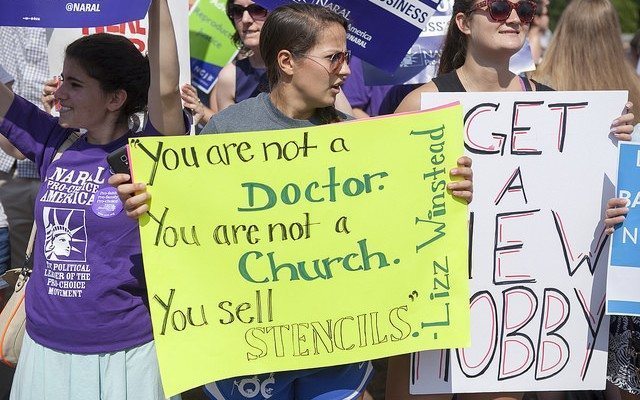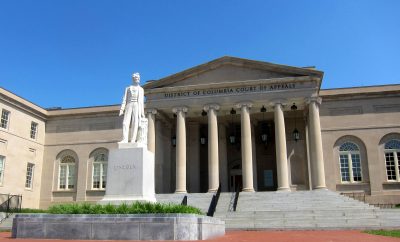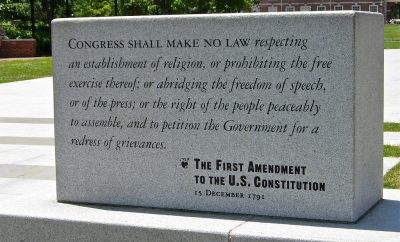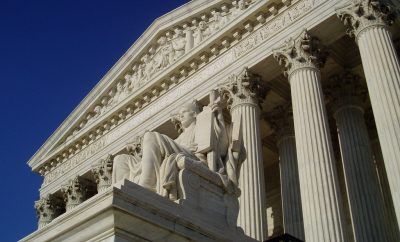
Society and Culture
Down the Hobby Lobby Rabbit Hole: Are Federal Anti-Discrimination Laws Next?
RANT WARNING: Be advised, this post may cause bouts of annoyance, defeatism, and pessimism.
Initially, I planned to write an upbeat post about the recent celebrations of pride happening across the country: the Puerto Rican Day Parade, LGBT Pride, America’s success in the World Cup, and the Fourth of July, to name a few. I thought it would be interesting to extrapolate from these events a larger analysis of celebrating (or not) one’s identity. And then damn Hobby Lobby happened. Womp womp.
Last week, the Supreme Court held in two cases collectively referred to as Hobby Lobby that for-profit corporations are exempt from complying with the Affordable Care Act’s contraception mandate on the basis of religious beliefs. Specifically, the Court found that the ACA’s contraception mandate was not the “least restrictive” way for the government to implement this law and thus it created too substantial a burden on the religious freedoms of the companies at issue. In reaching this conclusion, the Court pointed to a less restrictive workaround in the ACA for nonprofits: If there are religious objections to a medical treatment, third parties will provide coverage to the employees.
More broadly, as Justice Ruth Bader Ginsberg argued in her 35-page, no-I’m-not-retiring-yet-assholes, dissenting opinion, Hobby Lobby stands for the principle “that commercial enterprises, including corporations, along with partnerships and sole proprietorships, can opt out of any law (saving only tax laws) they judge incompatible with their sincerely held religious beliefs.”
That’s right: corporations are indeed people. Those legal entities (which, by the way, are created for the purpose of separating the individuals involved from the corporate entity so that those individuals may be shielded from legal liability) apparently eat, sleep, breath, love, and pray? They sound more human than Darth Vader Cheney.
And as persons, corporations can also speak freely (i.e., wholly bankroll political campaigns) and freely exercise their religion (i.e., infringe on a woman’s reproductive rights).
Hell, with the direction in which this Court is taking corporate personhood, businesses — like any actual individual person in this country — may be able to discriminate on a wider scale. What happens when a business owner’s religious beliefs clash with, say, Title VII’s ban on discrimination in employment? What happens when a business owner acts on his belief that being gay is a sin? In answering these questions, I keep seeing the Jim Crow days when business owners were free to discriminate on the basis of race; I keep seeing the 1980s when they were openly homophobic and sexist. That idea is indeed what makes this “a decision of startling breadth,” as Justice Ginsberg put it.
Sure, I understand that slippery-slope, parade-of-horribles arguments are necessarily illogical. But tell that to African Americans who lived through the aftermath of Plessy v. Ferguson’s separate-but-equal holding. Yes, Justice Samuel Alito, writing for the majority in Hobby Lobby, did promise that the ruling would not open the door to discrimination (exemptions to our anti-discrimination laws). Call me cynical, call me a blasphemer, but frankly I don’t have a whole lot of faith in this Court’s word — this Court that has been so adept at totally flouting precedent and stare decisis when it suits its political ends. Remember Citizens United? Bush v. Gore anyone?

Courtesy of DPMS via Flickr
In fact, we need look no further than last Thursday. Just days after the Court issued its Hobby Lobby ruling, it granted an unsigned emergency order in a new case involving Wheaton College, finding that the very workaround it had hailed as a less restrictive means by which the government could implement the ACA was also unconstitutional — that it substantially burdened the religious freedom of religious employers. What on Earth?! In the span of less than a week Hobby Lobby has already gone further than Hobby Lobby!
So now I sit here wondering what’s next. I wonder how far down this road the Supreme Court will take us. Debbie Downer over here, I know. But this is seriously like the worst season finale ever.
—
Chris Copeland (@ChrisRCopeland) is a staff attorney at a non-profit organization in the Bronx, a blogger, and a California ex-pat living in Brooklyn. When he’s not reading, writing, or watching horror, he explores the intersection of race and LGBT issues with Law Street.
Featured image courtesy of [American Life League via Flickr]









Comments